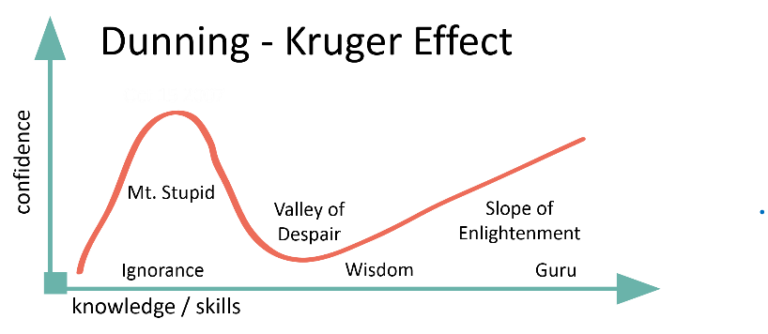Confidence – Why is it that some leaders have it while others lack it?
Why is it that someone who is clearly capable and has gotten themselves into a senior role can lack confidence to the point they feel paralysis when making decisions?
Is confidence ALWAYS a good thing?
In this episode of his Master Coach series, Phil Allison defines confidence as being made up of two key elements:
- Doubt
- Self-Belief
and demonstrates how the balance between the two can result in confidence, over-confidence, arrogance, lack of confidence or paralysis.
Overconfidence & the Dunning-Kruger Effect
In this Master Coach episode, Phil primarily focus on how to improve confidence in those who lack it but he also alludes to another very common issue leaders face which can be even more problematic: Overconfidence. Phil defines this as the outcome of self-belief greatly exceeding self-doubt or, as Adam Grant (author of Give & Take) recently posted on Linkedin:
Overconfidence is a product of ignorance. Doubt is a sign of expertise.

The phenomenon to explain this is known as the Dunning-Kruger Effect. Research conducted in 1999 by psychologists Dunning & Kruger, proved that we frequently overestimate our own abilities due to a lack of knowledge & skill. This is a form of a cognitive bias whereby people who are incompetent at something are unable to recognise it and not only that, they are very likely to feel confident that they actually are competent.
Last month Dunning released a short clip on TED-Ed explaining the effect in more detail. This is well worth a watch if you have a spare 5 minutes.






